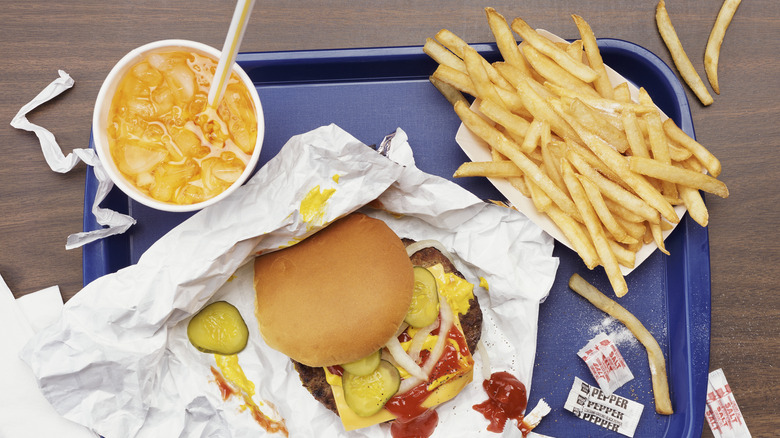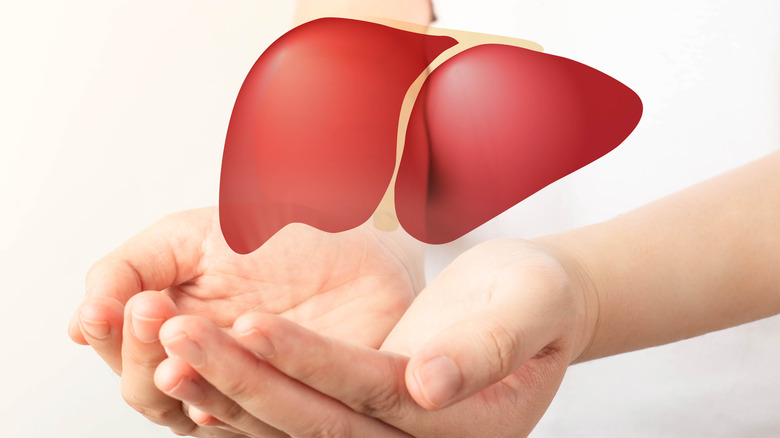A New Study Examines Just How Bad Fast Food Could Be For Your Liver
We all enjoy fast food every now and then, and there's certainly no shame in it. Whether you're getting a Big Mac from McDonald's or a Whopper from Burger King, most people can say that they like the occasional hamburger and a side of fries. It's quick, it's cheap, and it's very accessible. ScrapeHero tells us that, as of 2023, McDonald's alone has an incredible 13,281 locations across the United States alone.
With such a prevalence of fast-food restaurants in mainstream culture, some groups have taken to studying the particular effects of fast food's influence on the public at large. In 2018, the Center for Disease Control and Prevention published its study detailing fast-food consumption in adults between 2013 and 2016, with the results noting that 36.6% of adults would consume fast food on any given day. In 2021, a study by Michigan Health reported that, during the COVID-19 pandemic response, children seemed to be eating more fast food, with one out of six parents claiming their child eats fast-food more than twice a week. These studies reflect that a large number of Americans both young and old are consuming a good deal of fast food.
Of course, one has to wonder what the potential health consequences may be if so many Americans are consuming so much fast food. One study in particular investigates a possible connection between one's fast-food consumption habits and the risk of liver failure.
Can fast-food really trigger liver disease?
A study published in Clinical Gastroenterology and Hepatology proposes an interesting hypothesis: High consumption of fast food can lead to nonalcoholic fatty liver disease, a condition in which large amounts of fat deposits build up in the liver. The study, conducted by Keck Medicine of the University of Southern California, reports that individuals with obesity and diabetes who consume 20% or more of their daily calories from fast food have "severely elevated" levels of fat in their livers compared to those who eat little to no fast food.
Perhaps even more shocking is the claim that even those who consume even one meal per day at a fast-food restaurant are putting themselves at risk, especially if said meal is one-fifth (or more) of their daily calorie intake. While this may seem like an enormous number of Americans — young and old — may be near an extreme health crisis, the study admits that there are "major gaps" linking one's diet to nonalcoholic fatty liver disease, so more research will be required
A similar study conducted in 2007 in Sweden reported another connection between fast-food consumption and liver damage. During a four-week period, subjects consumed two fast-food meals a day in order to gauge the effects on the liver. The results revealed that the subjects had an "abnormally high" amount of alanine aminotransferase, which indicated signs of liver damage.
While you shouldn't feel guilty about enjoying fast food every now and then, it's always good to make responsible and healthy choices.

